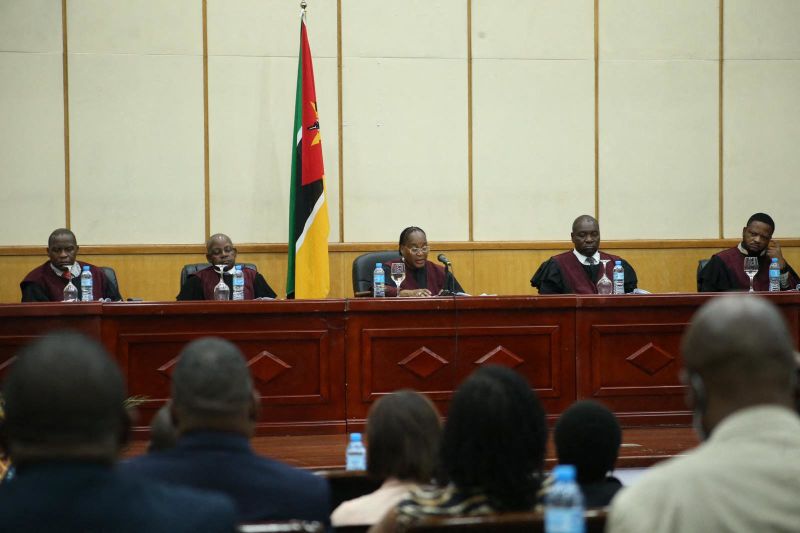Mozambique’s top court on Monday confirmed the ruling party Frelimo’s victory in an October election, which has sparked massive protests by opposition groups who say the vote was rigged.
The Constitutional Council has the final say over the electoral process and its ruling is likely to spark further protests in Mozambique, a Southern African country of close to 35 million people that Frelimo has governed since 1975.
Western observers said the election was not free and fair, and the post-election period has seen the biggest protests against Frelimo in Mozambique’s history.
At least 130 people have been killed in clashes with police, according to the civil society monitoring group Plataforma Decide.
Outside the conference center in the capital Maputo, where a senior Constitutional Council judge announced that Frelimo’s Daniel Chapo was president-elect and the party had retained its majority in parliament, the streets were deserted amid a heavy police presence.
But footage on local broadcaster TV Sucesso Moz showed protesters had taken to the streets in the northern city of Nacala-Porto within an hour of the announcement and in other areas of the capital.
In its final tally, the Constitutional Council said Chapo had secured about 65% of the vote, lower than the figure of more than 70% given by the electoral commission in late October. It also gave Frelimo fewer seats in the parliament than the commission did, without explaining why it had made those changes.
Frelimo has consistently been accused by opponents and election observers of rigging votes since it first allowed elections in 1994, although it has repeatedly denied those accusations. The electoral commission has not commented on allegations of fraud in this election.
Chapo told a Frelimo gathering that as president he would work to improve the lives of Mozambicans.
A representative of opposition leader Venancio Mondlane, who the Constitutional Council said came second in the presidential election with about 24% of the vote, rejected the results announced on Monday.
“We never thought that the electoral truth would be trampled. The will of the people was obliterated,” Judite Simao said.
The post-election unrest has already affected the operations of foreign companies including the Australian mining firm South32 S32.AX and led to the temporary closure of the main border crossing with neighboring South Africa.
A senior International Monetary Fund official told Reuters Mozambique’s 2024 economic growth would likely be below a previous 4.3% forecast because of the unrest and the impact of this month’s Cyclone Chido.

